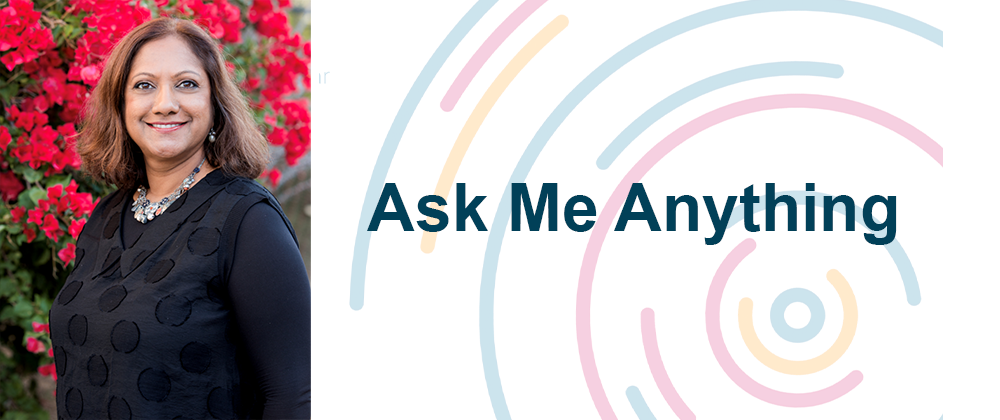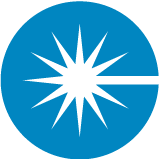Hi! I’m Nithya A. Ruff, Head of the Amazon Open Source Program Office. I drive open source culture and coordination inside of Amazon and engagement with external communities.
Prior to Amazon, I started and grew Comcast and Western Digital’s Open Source Program Offices. I first glimpsed the power of open source while at SGI in the ‘90s and have been building bridges between companies and the open source community ever since. I’m a passionate advocate and speaker for opening doors to new and diverse people in technology. I often speak and write on topics of OSPOs, diversity in tech and history and future of open source. I have been pushing for all contributions to open source to be valued such as in marketing, legal and community and not just code.
I also enjoy traveling and cooking new recipes. I'm currently working on a cookbook of family recipes to pass on to my children.



Top comments (16)
Hey Nithya! Thank you so much for doing this! How would you recommend fostering and building a more diverse contributor base? What tactics are different in 2022 than a few years ago?
What's one of your favorite recipes?
Demystifying open source, making it a welcoming community, showing newcomers on-ramps and mentorship programs have been some ways to diversify open source contributors. With the growth in digital work and open source fueling it, we need a lot of developers getting involved. And diverse contributors bring a broader thinking to the table which is needed. Also recognizing all forms of contribution is important to be a welcoming community. Coding is not the only way to contribute, we need legal minds like Heather Meeker, we need documentation experts, community building experts, marketing etc.
My favorite recipe is from a cookbook called Vibrant India by Chitra Agrawal. It recreates my childwood dal or lentils and is so easy to make. It is called Mixed Vegetables and Lentil Stew or Tharakaari Huli.
t.me/+GRGZ_IOsZ2A4MjQ0
I can't promise to make you a billionaire
But I teach how you can work from home and earn $3,000 in 1day and $34,000 in 7days
No scam
No referral needed
No fee
DON'T ASK ME HOW
JUST CLICK ON THE LINK BELOW TO START EARNING
👇👇👇👇👇👇👇👇👇👇
t.me/+GRGZ_IOsZ2A4MjQ0
I hope I can ask more questions! Many of my clients who are starting projects for the first time ask about models for project governance. The challenge is that a lot of governance is informal and not written down anywhere. What are your favorite resources for building a governance model? I heard that there was an idea for standard to be developed. Do you think that is a good idea, or is governance too hard to standardize?
opensource.com's article defines Governance this way: In short, governance is the rules or customs by which projects decide who gets to do what or is supposed to do what, how they're supposed to do it, and when. And it is about how work gets done, decisions made and issues resolved. Some large projects, projects at foundations etc. have often well documented governance models. And also a code of conduct for the community. I am a big fan of putting this together. There are good models one can learn from and some of the questions to ask are covered in the article on opensource.com. The standard can help develop the right questions and checklists to create governance but should let the project implement what works for them. It is not a bad idea to create some standards around what is good, transparent open source project governance. Precisely to help those of your clients starting projects for the first time.
Hi Nithya! A question with two sides -- What is your advice to non-technical folks who want to participate in open source projects? What is your advice to projects who want to broaden participation by non-technical folks?
PS thanks for the shout out!
So good to hear from you Heather.
Advice for Non-Technical Folks - We need you. There are many skills we need in open source. Come to a conference, talk to people in the community and ask them how you can contribute and get involved. Legal, Marketing, Design, Finance, Community, DEI and so many other skillsets and experiences are needed. And we have work to do to value these diff contributions. And Projects need to make it clear in their getting involved docs, governance and culture that they are a community that welcomes all people. And should post issues for non-tech needs. And reward thru recognition non-tech contributions. Community awards, Mktg awards etc. Often contributors acquire luminary and respected status and that is great. I love seeing non-technical folks join the governing boards or leadership of projects. And talks of all kinds at Open Source Events. All this signals that we are a diverse community of talented people.
Hello Nithya! I'm curious about how open source projects generally come to life in a large organization like AWS. It makes sense for me to think some of them are conceived with open source in mind since their inception (SDKs, CLIs, etc), but are you all periodically reviewing the internal tooling developed by engineers to make them public? Are teams that developed these encouraged to proactively nominate their tools/code through a defined process?
Follow up in case the second question above is somewhat on point with the way things work there:
Are engineers that used to work on them encouraged to dedicate part of their work hours to maintain them? Or does maintainer tasks on these (think feature requests, folks asking questions, etc) becomes a responsibility of a dedicated team?
Open Source Projects that are released by companies start their lives in many diff ways. You are right, some start with open source in mind like SDKs, CDKs etc. Some are often developed inside, but seek support to open source it. All companies use some due diligence on what makes it out and help developers release it to open source. The OSPO works hard to make sure that the developers understand their responsibilities once released and to set aside time to set up the project correctly and to support it. The reality is that sometimes, developers change roles, companies and interests and may stop supporting. The OSPO tries to find projects that are not supported and either find other maintainers inside the company or outside or archive it. Yes, we strongly encourage developers to set aside time to maintain their projects. In some cases, we will have whole teams that are dedicated to maintaining a project we release.
Hello! I'm curious to hear from your perspective, how has open source changed over the years? comparing today to the 90s, how jarring is the change?
It is much more documented and broadly understood for one thing. It is also more supported and consumed by organizations. And I think more developers working in open source work for a company or an organization. There are fewer hobbyist developers. Open Source is in practically every industry and continues to be global. A much more mature opens source world today.
How has open source changed in the last decade?
Parker - This last decade has seen some dramatic changes - Almost all industries are digitizing and hence using and engaging with open source. From Financial Services to Media and Entertainment to even Agriculture. More of the practices are being codified and implemented by newcomers to open source. I remember back in the 1990s we were just discovering how to work with open source communities and what licenses meant. Now a lot of that knowledge is broadly available. Open Source collaboration is being used by Hardware, Data and other sciences to come together, share and solve. I think the notion of collaborative problem solving can be even more broadly applied.
t.me/+GRGZ_IOsZ2A4MjQ0
I can't promise to make you a billionaire
But I teach how you can work from home and earn $3,000 in 1day and $34,000 in 7days
No scam
No referral needed
No fee
DON'T ASK ME HOW
JUST CLICK ON THE LINK BELOW TO START EARNING
👇👇👇👇👇👇👇👇👇👇
t.me/+GRGZ_IOsZ2A4MjQ0
How do you set goals with a big open source program like this? How might you create structured goals without being so rigid as to not react to trends in the ecosystem?
Ben - We do both a bottoms-up and a tops-down goal creation work with a view to doing an 18 month plan. I talked to over 100 leaders across the company to understand where we were in open source and where we needed to get to. Current state, future state, gaps and plan type of framework. And in an OSPO, you are moving the needle on a company's capabilities and maturity in working with open source and the goals fall out of the current state of the open source program at my company as well as where the business goals are. Open Source goals need to support business goals as well as being a good open source citizen.